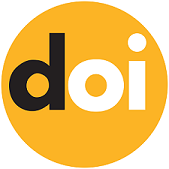Halal and the Digital Economy: A Research Overview
DOI:
https://doi.org/10.58932/MULJ0005Keywords:
Digital Economy, Halal Compliance, Crypto LedgerTechnology, Halal Certification, Islamic Finance, Cryptocurrencies, Divine Law Principles, Ethical E-Commerce (in the context of Islamic principles), Transparency, Ethical Business PracticesAbstract
The digital economy, which includes advancements like cryptocurrencies, Crypto Ledgertechnology, and e-commerce platforms, is changing sectors all over the world while bringing moral and religious issues to Muslim customers. Halal compliance in the digital realm encompasses more than just products that are allowed; it also includes Divine Law observance, ethical financial transactions, and open business methods. With an emphasis on the opportunities and challenges they provide, this paper examines important topics such digital currencies, Ethical E-Commerce (in the context of Islamic principles), and digital certification. Crypto Ledgertechnology is revolutionising e-commerce and Halal certification by offering decentralised, irreversible ledgers that solve issues of transparency and trust. Incorporating it can increase consumer confidence, streamline certification processes, and promote global standardisation of Halal operations. Inconsistent certification standards and the speculative nature of cryptocurrencies in Islamic finance remain problems in spite of these advancements. Collaboration between scholars, economists, and engineers is necessary to create a cohesive framework for Halal compliance in the digital economy, ensuring ethical and inclusive growth.
References
Ahmed, H. (2022). Islamic Principles and Digital Economy. Journal of Islamic Economics, 4(1), 15–28.
Ali, S., & Hussain, Z. (2021). Global challenges in Halal certification systems. International Halal Research Journal, 10(2), 45–60.
Al-Salem, M. (2020). Cryptocurrency and Divine Law: A Study on the Legitimacy of Bitcoin. Islamic Finance Journal, 3(4), 150–165.
Hassan, (2021). Crypto Ledger Technology: Its Role in the Islamic Economy. Journal of Islamic Technology, 5(2), 88–101.
Imran, S. (2023). The Rise of Halal E-commerce and Its Impact on Muslim Consumers. Global E-commerce Trends Review, 12(1), 42–57.
Khan, (2023). The role of digital technologies in Halal product verification. Halal Industry Review, 5(1), 112–130.
Mansoori, M. T. (2022). Crypto Ledger in Halal certification: Enhancing trust and transparency. Journal of Islamic Business and Finance, 14(3), 89–102.
Musa, M., & Ali, S. (2018). Halal E-commerce Platforms: Challenges and Solutions. International Journal of E-commerce Studies, 6(1), 47–62.
Downloads
Published
How to Cite
Issue
Section
License
Copyright (c) 2025 Journal of Halal Ethics and Research

This work is licensed under a Creative Commons Attribution-NonCommercial 4.0 International License.









